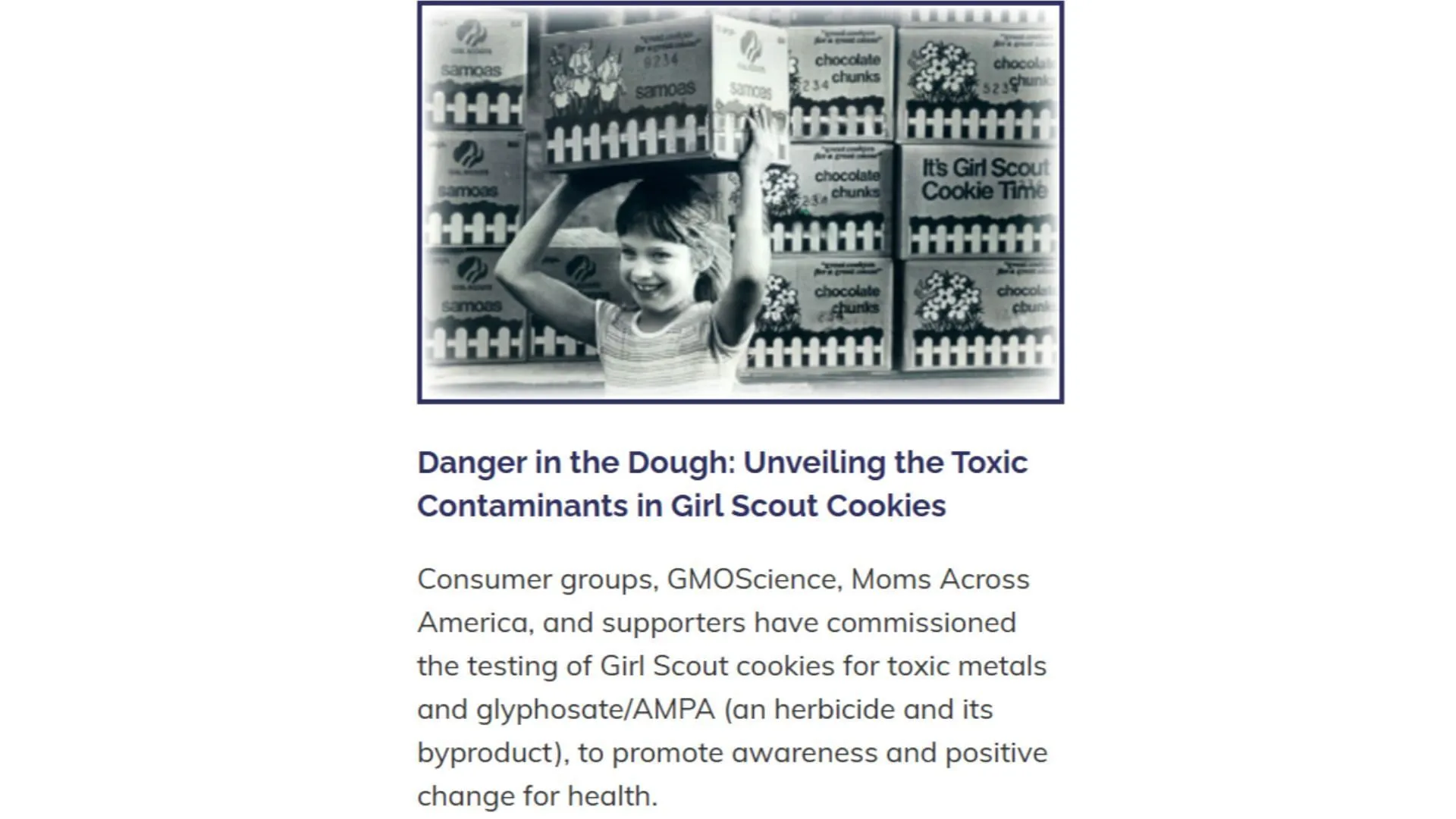The Girl Scouts organization is currently embroiled in a class-action lawsuit, which alleges that their popular cookie products contain harmful pesticides and heavy metals, including glyphosate and lead. Filed in New York on March 10, 2025, the lawsuit cites findings from advocacy groups, including GMO Science and Moms Across America, claiming that their tests found contaminants in every cookie sample analyzed.
The lawsuit seeks damages of $5 million from the Girl Scouts and their cookie manufacturers, ABC Bakers and Ferrero USA’s Little Brownie Bakers. The plaintiffs argue that the presence of these contaminants poses a significant health risk to consumers, particularly children.
In response, the Girl Scouts have categorically denied these allegations, stating that their cookies meet the safety standards set by the FDA and EPA. They assert that the trace levels of heavy metals found in their products stem from natural soil occurrence, and they highlight the common agricultural use of glyphosate as a contributing factor. Central to this legal dispute is a contentious report released in December 2024, which specifically accused Thin Mints and Peanut Butter Patties of having elevated levels of contaminants.
Contaminants in Focus: Insights from a 2024 Study

The class-action lawsuit hinges on a December 2024 study conducted by GMO Science and Moms Across America. This investigation examined 11 varieties of Girl Scouts cookies, gathered from California, Iowa, and Louisiana, encompassing a total of 25 boxes. Findings revealed that all tested cookies contained at least four out of five heavy metals, including aluminum, arsenic, cadmium, lead, and mercury.
Significantly, Peanut Butter Patties were noted for their elevated lead levels, while Thin Mints were reported to have the highest concentrations of glyphosate. The plaintiff contends that these findings constitute a breach of consumer protection laws, especially since the cookies are marketed as safe products sold by children.
High-Risk Cookies Identified

Among the cookies under scrutiny, Peanut Butter Patties (also known as Tagalongs) were highlighted for containing lead at levels approaching half of the Environmental Protection Agency’s (EPA) recommended threshold for children’s candy (set at 100 parts per billion). Additionally, the study indicated that Thin Mints contained glyphosate, an herbicide which the EPA regards as safe within regulated limits.
The study further asserted that 76% of the cookies surpassed EPA established cadmium limits for drinking water. However, it’s worth noting that the FDA does not impose such limits on food items. Other cookie brands tested include Adventurefuls, Samoas, and Lemon-Ups, all reportedly containing various trace metals.
Girl Scouts Upheld Compliance with Safety Standards
On February 6, the cookie-selling organization defended itself by asserting that its cookies conform to the safety guidelines of the FDA and the EPA. The organization pointed out that many metals naturally occur in soil and emphasized the widespread usage of glyphosate in agricultural practices. Their authoritative statement assured consumers of the absence of harmful additives and cited third-party audits that reaffirmed product safety. They stated:
“The health and safety of Girl Scouts and cookie customers is our top priority. Rest assured: Girl Scout Cookies are safe to consume… Girl Scout Cookies are made with ingredients that adhere to food safety standards set by the FDA and other relevant authorities.”
Manufacturers ABC Bakers and Little Brownie Bakers have refrained from further comment beyond the responses made by the Girl Scouts.
Expert Opinions and Regulatory Positions on Risk

Regulatory bodies such as the FDA and USDA do permit trace amounts of pesticides and metal residues in foods, as long as they remain below levels deemed harmful. Notably, Forbes has reported that the aforementioned study compared cookie contaminants to EPA standards for drinking water, which do not necessarily apply to food products.
Furthermore, while the EPA does not regulate lead levels in most food items, the FDA monitors these levels through its Total Diet Study. Experts caution, however, that it is chronic exposure to low-level toxins—not isolated servings—that presents a health risk, a detail that may be overlooked in the lawsuit’s claims.
Public Discourse and Misinformation Surrounding Safety Concerns
Amidst this controversy, social media has played a significant role in shaping public perception. In early 2025, misleading TikTok videos suggested an FDA recall for Girl Scout cookies, despite no such recall having occurred, as confirmed by Forbes. The proliferation of this misinformation has compelled the brand to publicly address safety issues.
Legal analysts propose that the resolution of this case may depend on demonstrating intentional misconduct or quantifiable harm, both of which present challenges within current food labeling laws.
The ongoing lawsuit highlights increasing consumer vigilance regarding food safety and labeling practices. While the allegations are based on contested interpretations of toxin thresholds, the outcome could potentially inform future regulatory discussions. For the time being, the Girl Scouts maintain that their cookies are safe, leaving it to the judicial system to evaluate the validity of the claims brought forth by the plaintiffs.


